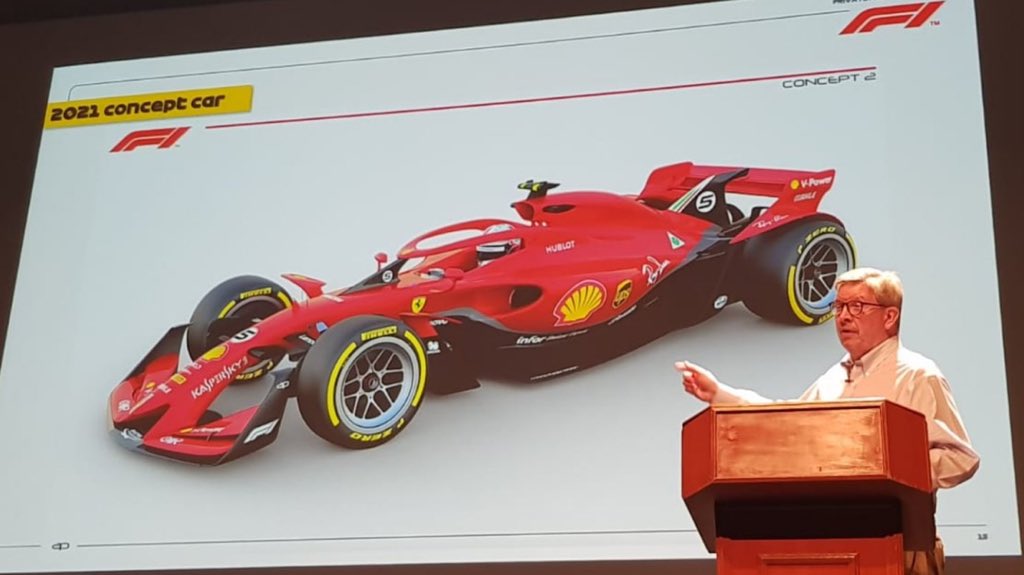

Technical director of Formula 1 Ross Brawn outlined Thursday in a post on the official F1 website how the series intends to attract new engine suppliers when engine regulations are overhauled in 2021.
Engine regulations for 2021 onward are expected to evolve from the current specification to reduce costs, increase reliability, and boost noise levels. Their configuration will continue to be turbocharged, 1.6-liter V6s with hybrid augmentation, though niceties such as the extent of hybridization and number of turbochargers are not yet certain. Regardless, current suppliers will be able to translate expertise from their 2014-2020 engines into their 2021 power units, making the mountain Honda has had to climb with its late entry in 2015 look like a molehill look in comparison.
To ease potential new suppliers’ concerns about being competitive, Brawn announced that all four current suppliers will have to share technical information and parts with newcomers, be they Cosworth, Aston Martin, or even McLaren.
“The drawbridge has been pulled up and the existing suppliers don’t want anyone else to come in,” said Brawn. “We have found a compromise. There are regulations coming out which would mean new entrants will get support from existing entrants. There will be components and technology which will have to be shared if it is requested.”
“It is not quite such a radical change that we were proposing, but still quite a good step in the right direction and there are some nice changes to the way the driver has to manage the engine, which I think goes a long way in the sporting direction,” Brawn continued. “There has been a recognition from the existing manufacturers that they can’t shut the door behind them. If we start to get serious interest from another manufacturer or supplier, they have to cooperate to find ways of helping that manufacturer come into F1.”
In addition to attracting engine suppliers, Brawn explained plans for a budget cap could not only level the playing field among existing constructors, but also attract new constructors, which have become a relative rarity in recent F1 history due to the soaring cost of running a competitive team.
“Unlike previous initiatives, this budget cap is going to be embedded in the regulations of the sport,” said Brawn.
As a result of the cost problems, three of the four teams to join in 2010 or later have gone belly-up, the only remainder being Haas, whose owner Gene Haas is adamant that a budget cap will bring the American team—whose $120 million seasonal budget is dwarfed by that of Red Bull, Ferrari, and Mercedes—into serious contention.
“The budget cap is a game changer,” Haas said in an official F1 website article in April. “It will create a new raft of different winners. And I guess there will be some losers on the other side.
“If and when the cost cap comes, I think we’re in a good place,” he continued. “Our biggest advantage is we’re adaptable to change quickly, because we’re new at it. We feel like that’s our advantage. We can adapt quickly. The bigger, more established teams have a harder time. They are like a big boat, they just don’t move quickly.”